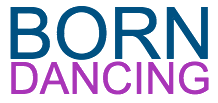““Words are in my not so humble opinion our most inexhaustible source of magic,
capable of both inflicting injury and remedying it.”
- Albus Dumbledore”
Our Language
Born Dancing acknowledges that language is fluid and that preferences and sensitives change. Currently, both People First Language and Identify First Language are the acceptable ways of articulating disability. Born Dancing uses People First Language and will always honor and use the terminology or language preferred by an individual or organization. Below is a brief overview of both outdated and currently preferred terminology. (From: Inclusion in the Arts)
DON’T USE - DO USE
1.Wheelchair-bound/confined to - Wheelchair user / uses a wheelchair
2. Suffers from/afflicted with/crippled by - These terms make assumptions about how the disabled person feels about his/her disability. Use “has” and the name of condition (e.g., has cerebral palsy, has paraplegia, etc).
3. The disabled/the blind/the deaf - Always use as an adjective rather than a noun; disabled person, blind filmmaker, deaf man.
4. Retarded/mentally retarded/retard - Intellectual disability; cognitive disability; developmental disability. When using these terms, however, it is important to understand the distinctions among them.
5. Handicapped (handicap) - In general, if you’re not writing about sports, don’t use it! Use disability, disabled person, person with a disability.
5a. Handicapped parking, restroom, etc. - Accessible parking, restroom, etc.
6. Midget/dwarf - Little person; dwarf is acceptable only if the subject actually has dwarfism. Person with dwarfism. Keep in mind: Anyone with dwarfism is a little person, but not every little person is a dwarf.
7. Deaf-mute/deaf and dumb, Hearing-impaired - Deaf, Hard of hearing
8. Physically challenged/differently abled - Avoid outdated or saccharine terms and euphemisms. Use disabled as an adjective (e.g., disabled sportscaster) or person-first language (e.g., person with a disability).
9. Overcoming/inspiring/brave/courageous - Avoid patronizing and condescending descriptives. Describe the person’s accomplishments without value judgment or interpretation.
10. Special / Special Needs - Do not use when referring to disabled people.

